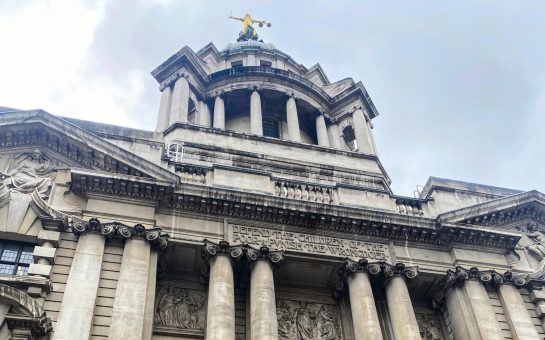New mandatory criminal court charges are driving innocent offenders to plead guilty and magistrates to resign in protest, says a Manchester magistrate.
Richard Monkhouse JP told MM that the new policy, which came into force on April 13 this year, required all convicted offenders to pay the same charges towards the cost of the court system, regardless of income.
The charge is £150 if a defendant pleads guilty but can rise to £1,000 if they plead innocent and are convicted.
Mr Monkhouse, who serves on the Trafford bench in Greater Manchester, expressed concern that innocent people on a low income could feel pressured to plead guilty to avoid paying a higher amount.
The former bench chairman also said there was a danger that convicted offenders could commit crime to pay the fees.
He said: “Very often the people that we see in court are not particularly wealthy, so we’re potentially encouraging them to reoffend.”
Mr Monkhouse, who is chair of the Magistrates Association, warned that he had seen unprecedented numbers of magistrates resigning in protest rather than imposing fines on people who were not able to pay.
On September 9, The Independent reported that more than 50 magistrates have resigned since the charges were introduced.
“These are magistrates who are experienced, trained and they’re saying ‘enough is enough’,” said Mr Monkhouse. “This is not fair, it’s not just and you’re taking away our authority to be fair.
“You’re actually taking away from us the ability to sentence someone appropriately because of this charge.
“I have had a number of magistrates in the past who’ve complained about certain issues. I’ve never seen this level of concern before.
“I have magistrates saying I just can’t do this, I can’t put a charge onto people who aren’t going to be able to pay it.
“We don’t think the government is even going to be able to collect the funds.”
Mr Monkhouse said that while it was understandable that the government wanted offenders to contribute to court costs, magistrates should have the right to decide what amount was appropriate, rather than having to impose the same mandatory charge.
“All we’re doing is asking the government to give us the discretion to impose the fee,” he said.
Mr Monkhouse said he had spoken to the Lord Chancellor Michael Gove about this issue shortly after he took office following the general election in May.
He said that the Magistrates Association have also submitted evidence to the parliamentary Justice Committee on the problem of criminal court charges.
In addition, he said that the problem was “an easy one to solve” since it simply required the government to give magistrates the power to set the amount charged.
A Ministry of Justice spokesperson said: “It is right that convicted adult offenders who use our criminal courts should pay towards the cost of running them.
“The introduction of this charge makes it possible to recover some of the costs of the criminal courts from these offenders, therefore reducing the burden on taxpayers.
“Instalment payments can be set up if a defendant’s means do not allow prompt payment in full. This will allow offenders to pay the charge in affordable instalments.”
Image courtesy of The Magistrates Association via. YouTube, with thanks.



